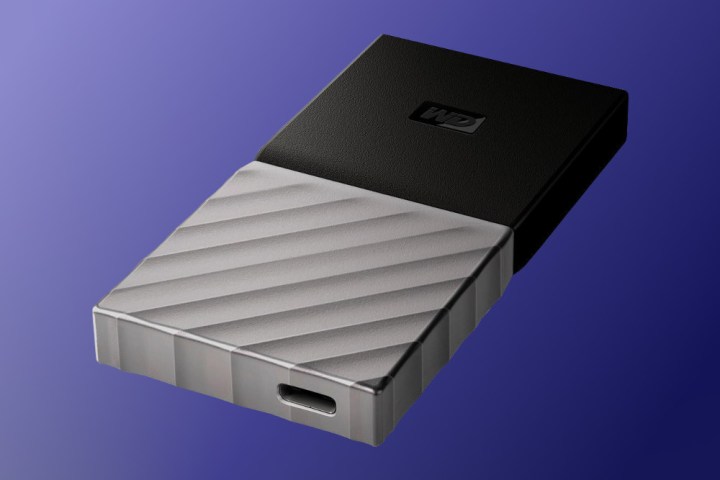
The My Passport SSD boasts a sleek external design, and measures 90 millimeters in height by 45 millimeters in length, with a thickness of less than half an inch. It’s fitted with a single USB Type-C port that takes care of both data transfers and charging responsibilities, according to a report from Beta News.
The company’s first external solid state drive supports the USB 3.1 Gen 2 specification, and as a result is capable of transfer speed of up to 515 MB per second. It comes packaged with a USB Type-C cable, as well as an adapter that provides compatibility with USB Type-A ports on older hardware.
Western Digital has kitted the drive out with plenty of security features, including password protection options and 256-bit AES hardware encryption. Users are also protected against other scenarios that might result in data loss, as it’s been tested to withstand a drop from up to 6.5 feet in the air, and up to 1500G of force.
A solid state drive doesn’t possess the same moving parts as a traditional, mechanical hard disk drive, which makes it a particularly good choice for an external drive that’s going to spend its time in and out of luggage, and otherwise being used on the go.
Western Digital will offer 256GB, 512GB, and 1TB versions of the My Passport SSD, which will cost $100, $200, and $400, respectively. The drives will soon be available to purchase from the company’s website, but it seems that for the time being, they’re exclusive to Best Buy.


